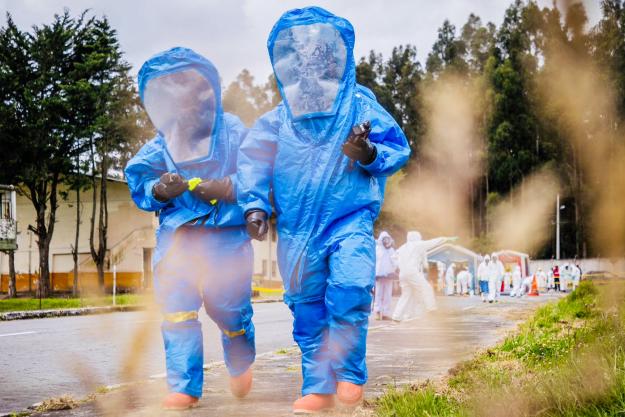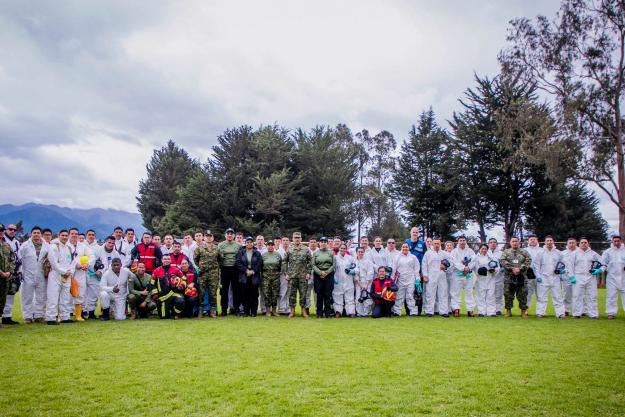To enhance the national capability to effectively handle incidents involving chemical warfare agents and toxic chemicals, the Organisation of the Prohibition of Chemical Weapons (OPCW) and the Government of Republic of Ecuador recently concluded a core component of a pilot training project aiming to support OPCW State Parties to conduct self-managed assistance and protection trainings using local experts.
From 19 to 26 June 2024, this in-person phase of the project brought 47 participants from local first-response services, including military, police, and fire brigade, and 18 local instructors to the Infantry Brigade No. 13 "Pichincha" in Machachi, Ecuador. Participants received training in chemical emergency response scenarios, building on the knowledge and skills acquired during the earlier phases of the project.
This phase of the project, which was funded by the Government of Ecuador, follows an online training held in April and May 2024 on OPCW's e-learning platform. Participants engaged in virtual learning, focusing on individual and collective protective equipment, monitoring, detection, decontamination techniques, and approaches to chemical emergency response.

Participants conduct investigation training
The pilot project has four objectives:
Impact evaluation: To evaluate at the national level the impact of the assistance and protection activities received by participants from Ecuador in recent years.
Self-managed training: The project explores the feasibility of Ecuador to conduct its own assistance and protection training cycle, adhering to OPCW standards and leveraging knowledge from local experts.
Assessing regional roll-out: Based on the results, the project's potential expansion to other regional groups and Member States will be considered.
Enhancing training: Lessons learned will inform improvements in both face-to-face and virtual training phases.
At the end of the 2024, a follow-up webinar will take place to consolidate findings and discuss the project's viability for expansion to other regional groups. As a result, a thorough pros-and-cons analysis will guide future initiatives.

Background
Under Article X of the Chemical Weapons Convention, Member States have the right to participate in, the fullest possible exchange of equipment, material and scientific and technological information concerning means of protection against chemical weapons."
As the implementing body for the Chemical Weapons Convention, the OPCW, with its 193 Member States, oversees the global endeavour to permanently eliminate chemical weapons. Since the Convention's entry into force in 1997, it is the most successful disarmament treaty eliminating an entire class of weapons of mass destruction.
In 2023, the OPCW verified that all chemical weapons stockpiles declared by the 193 States Parties to the Chemical Weapons Convention since 1997 - totalling 72,304 metric tonnes of chemical agents - have been irreversibly destroyed under the OPCW's strict verification regime.
For its extensive efforts in eliminating chemical weapons, the OPCW received the 2013 Nobel Peace Prize.






